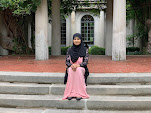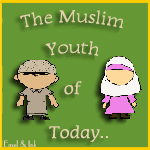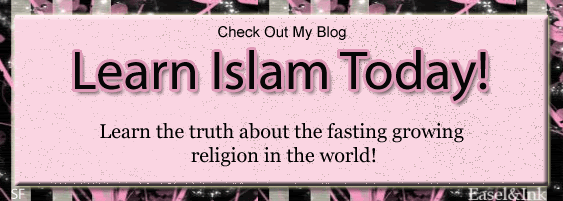Here is an article I wrote for my high school newspaper my senior year (2010-2011) about Ramadan, Eid, and Islam.
Have you heard any of your classmates say they were fasting? Most likely they are Muslim, a follower of the religion Islam. Did you have any questions in mind, like what is the importance of fasting in a Muslim’s life, who is required to fast, or what is Eid?
For starters, Ramadan is the 9th month of the lunar calendar, beginning with the sighting of the new moon. During this month, Muslims all over the world, no matter what nationality they are, where they live, their gender, etc. stay away from food, drink, and for married couples, any sexual relations, from sunrise to sunset for about 29-30 days, depending on the sighting of the next moon. (Before sunrise and after sunset each day, Muslims can go back to these). After the declaration of faith (Shahadah) and performing the five daily prayers on time (Salaat), fasting is the third of five pillars of Islam. The last two pillars are paying Zakat and going for Hajj. These five specific rites are the foundations of a Muslim’s life.
For obligatory fasts, a person must be a Muslim who has reached puberty, is of sane body and mind, and is not traveling. On the other hand, there are exceptions to people who do not have to fast in Ramadan, but have to makeup for missed fasts before the next Ramadan. Reasons where fasting is optional includes; if a person is traveling (who doesn’t have the intention to not fast), is sick (if harmful to their health), or women who are pregnant or nursing (if they or their child will be in danger).
Lessons to be learnt in Ramadan are numerous. One lesson is to become God (Allah) conscious, or being mindful that God is always aware of what we do. As Allah says in the holy book of Islam (Quran), "O you who believe! Fasting is prescribed for you as it was prescribed upon those before you in order that you may attain God consciousness (taqwa)." (Quran, 2:183).
Another important lesson is learning self control and discipline. This is obvious if one is abstaining from a natural human desire like eating. Ramadan is also a good time to give up bad habits and replace them with good ones and implement good manners. An authentic narration of Prophet Muhammad's (hadith) says, “Whoever does not give up telling lies (false statements) and acting on those lies, and any evil actions, Allah is not in need of him leaving his food and drink” (i.e. Allah will not accept his fasting) (Sahih Bukhari).
Learning to become patient and charitable should also be goals to achieve in Ramadan and continue throughout the rest of the year. As humans, we should know to not take things for granted and be thankful to God for everything we have. Recognizing God’s blessings is something a Muslim realizes after a day of fasting! Getting the feeling of what the less fortunate have to go through without daily necessities such as food and drink is something we should all show appreciation for towards God, and what better way to show gratitude then obeying God in what he told us to do (such as fasting) and abstaining from what he has forbidden (such as associating partners with him).
The sighting of the new moon ends Ramadan. The next day known as Eid-ul-Fitr, or the festival of breaking fast, is a day when Muslims in the community come together at the masjid (Muslim house of worship) for prayers. Muslims wear new clothes, give each other gifts, and share meals with family, friends, and the needy. A compulsory charity (Zakat) from personal possessions such a gold or silver, money, livestock, agricultural produce, or business commodities must be given by Muslims prior to the end of Ramadan for the benefit of the less fortunate so they can also join in the Eid celebration.
When asked what she looks forward to on Eid, senior J.C. replied, "the cultural food". Some other responses to what they look forward to included; dressing up, getting presents, family coming together, and going out with friends.
The second Muslim celebration, called Eid-ul-Adha (festival of sacrifice), ends the pilgrimage to Makkah, Saudi Arabia (Hajj) that Muslims must make at least once in their lifetime if they are physically and financially able. During the trip, Muslims travel to many locations and perform certain rites, such as going around the Kabah and between two mountains as Hajar (Ibrahim’s wife) did during her search for water for her son Isma'il, among many other rites. The pilgrimage ends with Eid ul-Adha, which is celebrated with prayers, the sacrifice of an animal, and the exchange of greetings and gifts in Muslim communities everywhere.
New Jersey is home to about a half million Muslims, and 100 masjids, according to the Council on American Islamic Relations. Thus, New Jersey districts should accommodate for Muslim students having a day off for both Eids, just as Paterson, Atlantic City, Trenton, Piscataway, Prospect Park, and others have done.
Check out http://www.fastramadan.com/index.php, http://www.2eids.com/, and http://www.performhajj.com/ for information on Ramadan, Eid, and Hajj, and also my blog at http://learnislam2day.blogspot.com/ for information about Islam and Muslims.
Subscribe to:
Post Comments (Atom)





No comments:
Post a Comment